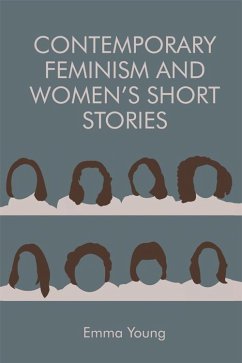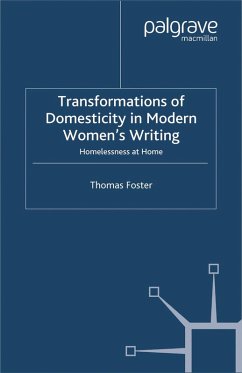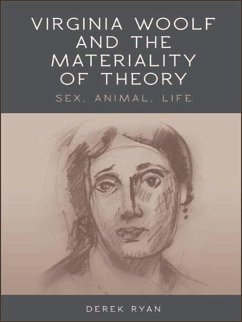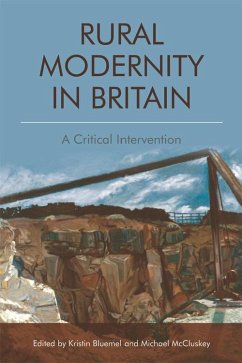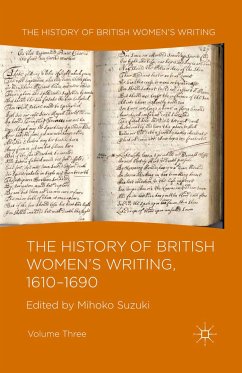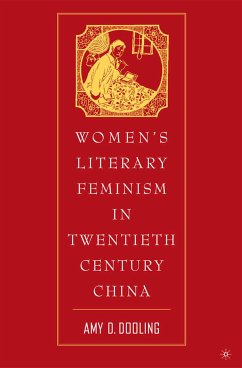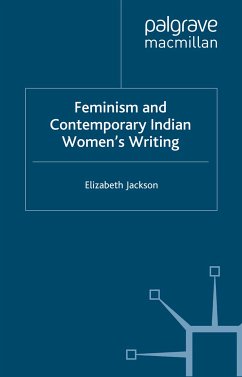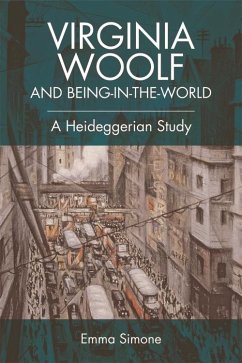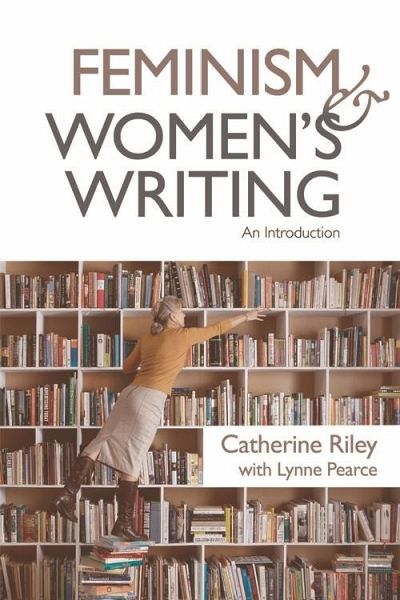
Feminism and Women's Writing (eBook, PDF)
An Introduction

PAYBACK Punkte
0 °P sammeln!
Outlines the key debates in feminism and women's fiction in the twentieth and twenty-first centuriesThis book introduces you clearly and succinctly to the ways in which feminist ideas have transformed the form and content of British women's fiction and non-fiction writing. The Introduction sets out the critical background and the main feminist critical approaches to literature. This is followed by 5 chapters which outline feminist engagements with the canon, gender, the body, sexual difference and ethnicity to demonstrate the ways in which feminist ideas have affected the content of women's li...
Outlines the key debates in feminism and women's fiction in the twentieth and twenty-first centuries
This book introduces you clearly and succinctly to the ways in which feminist ideas have transformed the form and content of British women's fiction and non-fiction writing. The Introduction sets out the critical background and the main feminist critical approaches to literature. This is followed by 5 chapters which outline feminist engagements with the canon, gender, the body, sexual difference and ethnicity to demonstrate the ways in which feminist ideas have affected the content of women's literature. The next 5 chapters examine types of fiction writing: romance, crime, science fiction, life-writing and historical fiction, to show the effect of feminist ideas on the form of women's literature.
The text also provides a wide range of illuminating case studies which include: Virago Modern Classics, The Women Prize for Fiction, Charlotte Perkins Gilman's Herland, Angela Carter's The Passion of New Eve, Margaret Atwood's The Edible Woman, Lucy Ellmann's Sweet Desserts, Barbie dolls, French feminism and sexuality, trans identities, feminist publishing and ethnicity, black and minority ethnic women's writing, Zadie Smith's novels, Toni Morrison's Beloved, Eimear McBride's A Girl is a Half Formed Thing, Val McDermid and lesbian crime writing, Ruth Rendell and the invention of the 'whydunit', Margaret Atwood's Maddaddam sci fi trilogy, Jeanette Winterson's Oranges Are Not The Only Fruit and The Passion, Pat Barker's Regeneration trilogy and Hilary Mantel's Wolf Hall and Bring Up The Bodies. Each chapter ends with a list of primary texts and recommended further reading.
Key Features
This book introduces you clearly and succinctly to the ways in which feminist ideas have transformed the form and content of British women's fiction and non-fiction writing. The Introduction sets out the critical background and the main feminist critical approaches to literature. This is followed by 5 chapters which outline feminist engagements with the canon, gender, the body, sexual difference and ethnicity to demonstrate the ways in which feminist ideas have affected the content of women's literature. The next 5 chapters examine types of fiction writing: romance, crime, science fiction, life-writing and historical fiction, to show the effect of feminist ideas on the form of women's literature.
The text also provides a wide range of illuminating case studies which include: Virago Modern Classics, The Women Prize for Fiction, Charlotte Perkins Gilman's Herland, Angela Carter's The Passion of New Eve, Margaret Atwood's The Edible Woman, Lucy Ellmann's Sweet Desserts, Barbie dolls, French feminism and sexuality, trans identities, feminist publishing and ethnicity, black and minority ethnic women's writing, Zadie Smith's novels, Toni Morrison's Beloved, Eimear McBride's A Girl is a Half Formed Thing, Val McDermid and lesbian crime writing, Ruth Rendell and the invention of the 'whydunit', Margaret Atwood's Maddaddam sci fi trilogy, Jeanette Winterson's Oranges Are Not The Only Fruit and The Passion, Pat Barker's Regeneration trilogy and Hilary Mantel's Wolf Hall and Bring Up The Bodies. Each chapter ends with a list of primary texts and recommended further reading.
Key Features
- Provides a clear overview of changing feminist debates and terms from the first to the fourth wave
- Each chapter ends with a list of primary texts and recommended further reading
- Assesses the ways in which literary, political and mainstream cultures, as well as the book industry, have impacted on the work and ideas of female writers
Dieser Download kann aus rechtlichen Gründen nur mit Rechnungsadresse in A, B, BG, CY, CZ, D, DK, EW, E, FIN, F, GR, HR, H, IRL, I, LT, L, LR, M, NL, PL, P, R, S, SLO, SK ausgeliefert werden.




